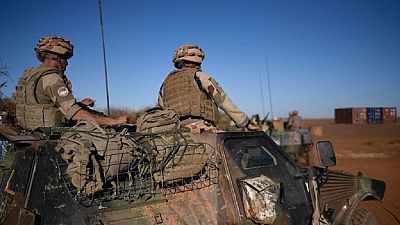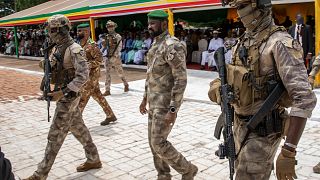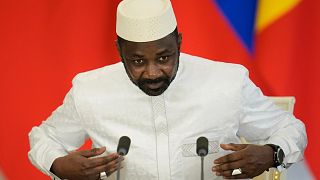Mali
Saudi Arabia has pledged $100 million to a new regional military force battling jihadist groups in West Africa’s Sahel region.
The contribution would be a major boost to the cash-strapped force and bring pledged commitments to more than half the roughly $500 million the G5 Sahel says it needs for its first year of operations.
The G5 Sahel – composed of the armies of Mali, Mauritania, Niger, Burkina Faso and Chad – launched its first military campaign in October amid growing unrest in the Sahel, whose porous borders are regularly crossed by jihadists, including affiliates of al Qaeda and Islamic State.
Those groups have stepped up attacks on civilian and military targets, including tourist attractions in regional capitals, raising fears the zone will become a new breeding ground for militants.
Mali’s foreign ministry said Saudi Arabian authorities made the pledge during a visit to the kingdom late last month by Malian Foreign Minister Abdoulaye Diop.
Saudi Arabia’s foreign ministry did not immediately respond to a request for comment.
The Sunni Muslim kingdom is competing with its main rival, Shiite power Iran, for influence across West Africa and other parts of the Muslim world. Donors from both countries have given money to mosques and other causes there.
France, the G5’s most vocal foreign backer, has pressed Saudi Arabia to take concrete actions to fight Islamist militants.
French President Emmanuel Macron asked Saudi Crown Prince Mohammed bin Salman to contribute to the G5 when he saw him in Riyadh last month.
The European Union, France, the United States and each of the G5 countries have also promised to fund the force.














Go to video
Nearly 200 migrants intercepted off the coast of Senegal
00:26
Passengers no longer have to remove shoes at US airport screening
Go to video
African migrants targeted as visa scams surge amid tougher immigration rules in Canada
00:42
Iran's Supreme Leader makes first public appearance since the start of Israel-Iran war
01:06
Brazil launches major security operation ahead of BRICS Summit
01:12
US President Trump announces surprise summit with five African Nations